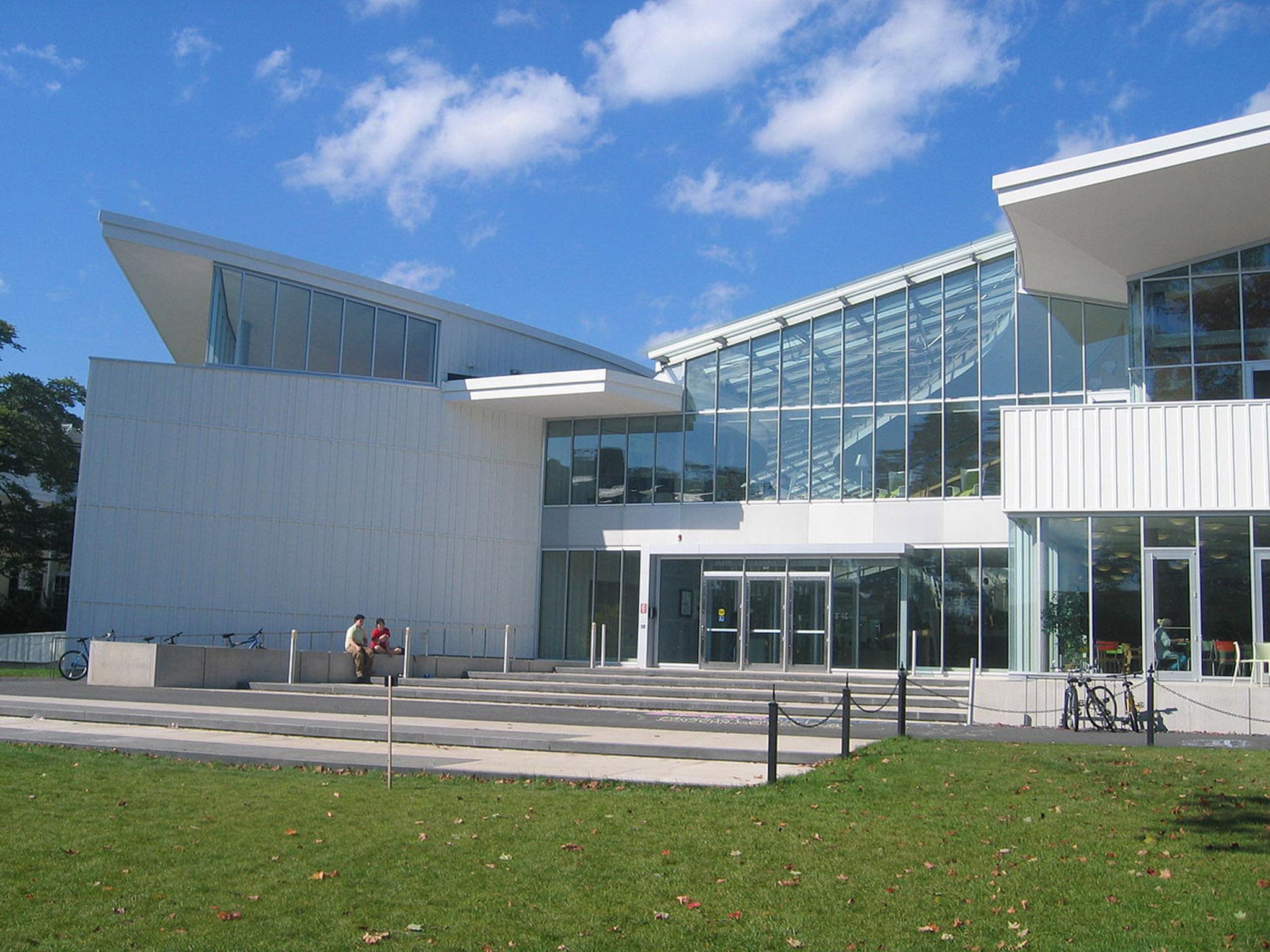Smith College: Where students are taught how to deal with failure
With students struggling to cope with the pressures of university, this institution in the US is encouraging them to embrace their disappointments

Your support helps us to tell the story
From reproductive rights to climate change to Big Tech, The Independent is on the ground when the story is developing. Whether it's investigating the financials of Elon Musk's pro-Trump PAC or producing our latest documentary, 'The A Word', which shines a light on the American women fighting for reproductive rights, we know how important it is to parse out the facts from the messaging.
At such a critical moment in US history, we need reporters on the ground. Your donation allows us to keep sending journalists to speak to both sides of the story.
The Independent is trusted by Americans across the entire political spectrum. And unlike many other quality news outlets, we choose not to lock Americans out of our reporting and analysis with paywalls. We believe quality journalism should be available to everyone, paid for by those who can afford it.
Your support makes all the difference.Last year, during autumn orientation at Smith College, Massachusetts, and then again recently at final-exam time, students who wandered into the campus hub were faced with an unfamiliar situation: the worst failures of their peers projected onto a large screen.
“I failed my first college writing exam,” one student revealed.
“I came out to my mum, and she asked, ‘Is this until graduation?’” another said.
The faculty, too, contributed stories of screwing up.
“I failed out of college,” a popular English professor wrote. “Sophomore year. Flat-out, whole semester of F’s on the transcript, bombed out, washed out, flunked out.”
“I drafted a poem entitled Chocolate Caramels,” said a literature and American studies scholar, who noted that it “has been rejected by 21 journals ... so far”.
This was not a hazing ritual but part of a formalised programme at the women’s college in which participants more accustomed to high test scores consent to having their worst setbacks put on display.
“It was almost jarring,” says Carrie Lee Lancaster, 20. “On our campus, everything can feel like such a competition, I think we get caught up in this idea of presenting an image of perfection. So to see these failures being talked about openly, for me I sort of felt like, ‘OK, this is OK, everyone struggles’.”

The presentation is part of a new initiative at Smith, Failing Well, that aims to “destigmatise failure”. With workshops on impostor syndrome, discussions on perfectionism, as well as a campaign to remind students that 64 percent of their peers will get (gasp) a B-minus or lower, the programme is part of a campus-wide effort to foster student “resilience”, to use a buzzword of the moment.
“What we’re trying to teach is that failure is not a bug of learning, it’s the feature,” says Rachel Simmons, a leadership development specialist in Smith’s Wurtele Centre for Work and Life and a kind of unofficial “failure czar” on campus. “It’s not something that should be locked out of the learning experience. For many of our students – those who have had to be almost perfect to get accepted into a school like Smith – failure can be an unfamiliar experience. So when it happens, it can be crippling.”
Simmons would know. She hid her own failure (dropping out of a prestigious scholarship programme in her early twenties; told by her college president that she had embarrassed her school) for close to a decade. “For years, I thought it would ruin me,” she says.
Which is why, when students enrol in her programme, they receive a certificate of failure upon entry, a kind of permission slip to fail. It reads: “You are hereby authorised to screw up, bomb or fail at one or more relationships, hook-ups, friendships, texts, exams, extracurriculars or any other choices associated with college ... and still be a totally worthy, utterly excellent human.”
A number of students proudly hang it from their dormitory walls.
Preoccupied in the 1980s with success at any cost (think Gordon Gekko), the US business world now fetishises failure, thanks to technology experimentalist heroes like Steve Jobs. But while the idea of “failing upward” has become a badge of honour in the startup world – with blog posts, TED talks, even industry conferences – students are still focused on conventional metrics of achievement, campus administrators say.
Nearly perfect on paper, with résumés packed full of extracurricular activities, they seemed increasingly unable to cope with basic setbacks that come with university life: not getting a room assignment they wanted, getting put on a waiting list for a class or being rejected by clubs.
“We’re not talking about flunking out of pre-med or getting kicked out of college,” Simmons says. “We’re talking about students showing up in residential life offices distraught and inconsolable when they score less than an A-minus. Ending up in the counselling centre after being rejected from a club. Students who are unable to ask for help when they need it, or so fearful of failing that they will avoid taking risks at all.”
Almost a decade ago, staff at Stanford and Harvard universities coined the term “failure deprived” to describe what they were observing: the idea that, even as they were ever more outstanding on paper, students seemed unable to cope with simple struggles. “Many of our students just seemed stuck,” says Julie Lythcott-Haims, the former dean of freshmen at Stanford and the author of How to Raise an Adult.
They soon began connecting the dots: between what they were seeing anecdotally – the lack of coping skills – and what mental health data had shown for some time, including, according to the American College Health Association, an increase in depression and anxiety, overwhelming rates of stress and more demand for counselling services than campuses can keep up with.
It was Cornell University that, in 2010 after a wave of student suicides, declared that it would be an “obligation of the university” to help students learn life skills. Not long after, Stanford started an initiative called the Resilience Project, in which prominent alumni recounted academic setbacks, recording them on video. “It was an attempt to normalise struggle,” Lythcott-Haims says.

A consortium of academics soon formed to share resources, and programmes have quietly proliferated since then: the Success-Failure Project at Harvard, which features stories of rejection; the Princeton Perspective Project, encouraging conversation about setbacks and struggles; Penn Faces at the University of Pennsylvania, a play on the term used by students to describe those who have mastered the art of appearing happy even when struggling.
At the University of Texas at Austin, there is now a free iPhone app, Thrive, that helps students “manage the ups and downs of campus life” through short videos and inspirational quotes. The University of California, Los Angeles, has what it calls a head of student resilience on staff. While at Davidson College, a liberal arts school in North Carolina, there is a so-called failure fund, a series of $150 (£116) to $1,000 grants for students who want to pursue a creative endeavour, with no requirements that the idea be viable. “We encourage students to learn from their mistakes and lean into their failure,” the programme’s news release states.
“For a long time, I think we assumed that this was the stuff that was automatically learned in childhood: that everyone struck out at the baseball diamond or lost the student council race,” says Donna Lisker, Smith’s dean of the college and vice president for student life. “The idea that an 18-year-old doesn’t know how to fail on the one hand sounds preposterous. But I think in many ways we’ve pulled kids away from those natural learning experiences.”
And so, universities are engaging in a kind of remedial education that involves talking, a lot, about what it means to fail.
“I think colleges are revamping what they believe it means to be well-educated – that it’s not about your ability to write a thesis statement but to bounce back when you’re told it doesn’t measure up,” says Simmons, the author of two books on girls’ self-esteem who is publishing a third, Enough as She Is, next year. “Especially now, with the current economy, students need tools to pivot between jobs, between careers, to work on short-term projects, to be self-employed. These are crucial life skills.”
Researchers say it’s a complicated interplay of child-rearing and culture: years of helicopter-parenting and micromanaging by anxious parents. “This is the generation that everyone gets a trophy,” says Rebecca Shaw, Smith’s director of residence life. University admissions mania, in which many middle- and upper-class students must navigate what Simmons calls a “Hunger Games-like mentality” where the preparation starts early, the treadmill never stops and the stakes can feel impossibly high.
It is fear about the economy and added pressure to succeed felt by first-generation and low-income students: of being the first in their families to go to university; of having to send money home; or simply overcoming the worry that, as one engineering student put it, “maybe I was a quota”.
“I’m coming from a low-income, predominantly African-American community where there just aren’t resources,” says Arabia Simeon, 19, a student at Smith. “So there is this added pressure of needing to do well.”
And there’s the adjustment, for many high-achieving students, of no longer being “the best and brightest” on campus, says Amy Jordan, the associate dean for undergraduate studies at the University of Pennsylvania. Or what Smithies call “special snowflake syndrome”.

“We all came from high schools where we were all the exception to the rule – we were kind of special in some way, or people told us that,” says Cai Sherley, 20, seated in the campus cafe. Around her, Zoleka Mosiah, Simeon and Lancaster nod in agreement. “So you get here and of course you want to recreate that,” Sherley says. “But here, everybody’s special. So nobody is special.”
Social media doesn’t help, because while students may know logically that no one goes through university or, let’s be honest, life without screw-ups, it can be pretty easy to convince yourself, by way of somebody else’s feed, “that everyone but you is a star”, says Jaycee Greeley, 19, a sophomore.
It is also a culture that has glorified being busy – or at the very least conflates those things with status. “There’s this idea that I’m not worthy if I’m not stressed and overwhelmed,” says Stacey Steinbach, a residential life coordinator at Smith. “And in some sense to not be stressed is a failing.”
It’s what Simmons calls “competitive stress”: the subject of her afternoon workshop on the campus lawn, to which she is luring students with ice cream and bingo.
When students arrive at the workshop, the sundaes are there. But the bingo cards are a little different too, filled with things like “I have 20 pages to write tonight”, “I’m too busy to eat” and “I’m so dead”. It is called Stress Olympics.
“It’s basically a play on competitive suffering,” says Casey Hecox, a 20-year-old student. “It’s when we’re like, ‘I have three tests tomorrow.’ And then someone’s like, ‘I have five tests tomorrow, and my dog is sick.’”
With only a few weeks before university finishes, the stress pinwheel over summer internships and jobs – applications, recommendations, networking – is already at a steady buzz. What if they don’t get one? Or the right one? “I’m not used to the whole ‘summer job’ concept, and I found the process quite intimidating,” says Mosiah, 21, a sophomore. “I had to ask for help from my friends and the on-campus resources to work through this. I’m not used to asking for help or being rejected this often, so I was really taken aback.”
Lancaster says, “Sometimes it’s hard not to take each and every rejection letter as a failure, but I’m trying to stay positive.”
Whatever happens, there will be plenty of time to talk about it when students return to campus in the autumn.
© New York Times
Join our commenting forum
Join thought-provoking conversations, follow other Independent readers and see their replies
Comments